Following my introductory post about the Value of Case Studies (here), now it is time to share how this works in Ukraine.
I was fortunate to attend the launch of the fourth National Case Study Contest in Kiev, Ukraine on 14th May.
Actually, my story with this contest started a while back, in my capacity as a judge in the third year of the contest. The contest is hosted by the Center for CSR Development in Ukraine, led by the ever-energetic Maryna Saprykina, the dynamo of the CSR scene in Ukraine.
Over the three years of this program, over 110 case studies have been submitted. The contest is generously sponsored by Ernst and Young in Kiev, where the passionate Victor Kovalenko, Climate Change and Sustainability Services practice manager, Ernst and Young, has a strong personal involvement.
The case studies that were submitted last year covered a wide spectrum of topics ranging from road safety, employee engagement, educational programs and more, and were all of impressive quality, clearly stating the issue addressed, the activity and the outcomes.
The winning Case Study in 2011 was from System Capital Management (SCM) a professional investor and the managing company of a financial and industrial group of Ukraine, the SCM Group, which comprises over 100 companies in Ukraine and internationally, employing around 200,000 people. The case study showed SCM's significant contribution to education. "Reforming Ukraine's education system has been an increasingly important issue on the national agenda as far as for the country's successful development and its ability to compete in the modern economy depend on the quality of education of its citizens. Starting from 2008, we have been implementing our social programme “Contemporary Education”, based on concrete steps to ensure that the quality of training of Ukrainian university graduates corresponds to the demands of the real economy sector. The programme has 4 key components aimed and driving the education reform agenda. We believe that by investing in education and raising the quality and standards today we are investing in successful development of Ukraine in the future." In this program, 234 universities took part in a Compass Ranking in 2008-2011, creating awareness for educational possibilities and over 2,000 students from different universities attended master classes delivered by SCM executives in 2010-2011.
The second place went to Turbatoam, one of the world's largest turbine construction enterprise that implements full production cycle: design, manufacture, supply, installation and adjusting, firm maintenance of turbine equipment for all types of power plants. The issue at Turbatoam was a poor image and difficulty in recruiting young appropriately qualified professionals. The company established a comprehensive Human Resources management program to ensure attraction and retention. The program covered salary restructuring, a full social policy, education, training and career development, and results-based incentives. This resulted in a more balanced age profile in the company and more effective attraction and recruitment of young professionals.
The third place went to ViDi Group, a leader in the automotive and logistics market in Ukraine. In 2009 the Company established the first in Ukraine City of Cars "ViDi AutoCity", which includes authorized dealerships of leading international car brands. The ViDi case study also related to people management, inspired by the need to cope with rapid organizational growth, through creating a staff loyalty program, based on employee dialogue and responses to needs. Turnover reduced by 4% and 16% of staff achieved promotion in 2010 and many other benefits were realized.
Other interesting studies included:
Auchan, a hypermarket retailer, which developed a program to address the spread of AIDS. The speed of AIDS development in Ukraine is one of the highest in the world with up to 148,000 people infected with the AIDS virus and over 8,000 children hospitalized due to this disease. Auchan developed a fabulous program to raise awareness and support AIDS prevention.
The Lafarge Group developed a program to address road safety. The Lafarge Group had over 30 road fatalities in 2010 and early 2011. Therefore, in 2011 the topic of road safety was made a priority and several effective programs implemented for employees and the local community.
Obolon, a large brewery, developed a case study to support environmental protection and recycling of plastic bottles, a major issue in Ukraine.
I expect that the fourth contest, which will give preference to Sustainability Reporting, will be just as fascinating! To introduce the theme, I made a presentation on Trends and Best Practices in Sustainability Reporting (which I will cover in another post!) .
Still on the theme of Sustainability Reporting, I enjoyed a most interesting panel moderated by Pavlo Sheremeta, a partner at Inspira with panelists Viktoria Grib, Sustainability Manager, DTEK, Viktoria Mykhno, Head of PR at Platinum Bank and Victor Kovalenko of Ernst and Young mentioned above. Aside from the fact that the panel was only for people with names beginning with V, one of the most interesting themes of this discussion was the element of fear which stops companies taking that first step toward transparency.
Both DTEK and Platinum Bank overcame all fears and reservations and are pioneers in the Ukraine market. DTEK published their first Sustainability Report covering 2007 and report every two years with a UNGC COP every year. DTEK's most recent Sustainability Report is here. Their journey has been progressive with each successive report more transparent than the previous one. The process of external verification has also been of value, helping management understand the issues that are important for the company to address in the report and its impacts on society. Platinum Bank published a first report in 2010, a GRI based report at level C, and as far as I can tell, the first bank in Ukraine to publish a Sustainability Report. Viktoria Mykhno shared her learnings from the process of developing this report, which included a wise piece of advice: "Be concise and meaningful - cut out what's not material - it's like cutting out your heart, but do it anyway!"
But back to case studies and the fabulous program in Ukraine. It's a way to share, learn, engage and build a body of best practice. I am looking forward to seeing the new submissions later this year. And more Ukranian companies reporting on their sustainability impacts.
Photo Credits to the Center for CSR Development. see more here.
elaine cohen, CSR consultant, Sustainability Reporter, HR Professional, Ice Cream Addict. Author of CSR for HR: A necessary partnership for advancing responsible business practices Contact me via www.twitter.com/elainecohen on Twitter or via my business website www.b-yond.biz (Beyond Business, an inspired CSR consulting and Sustainability Reporting firm)






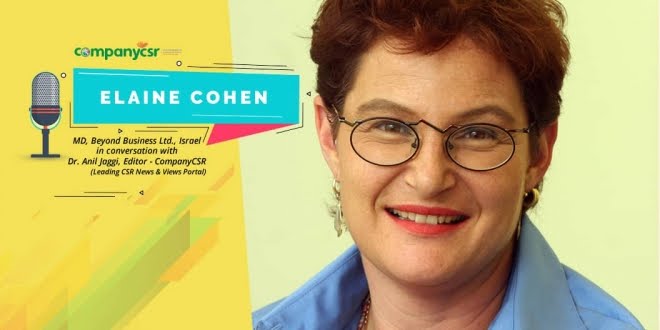
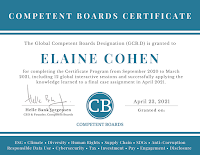


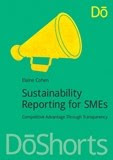
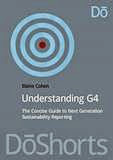
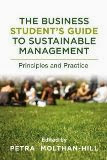
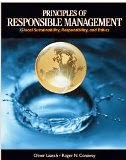
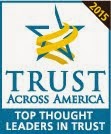










No comments:
Post a Comment